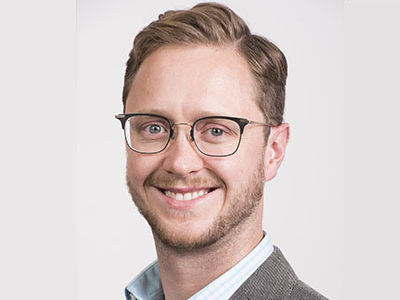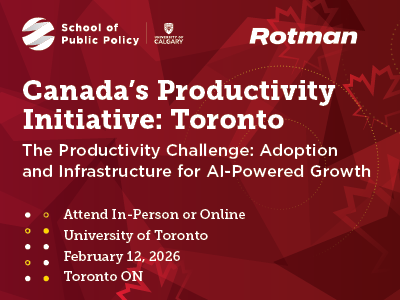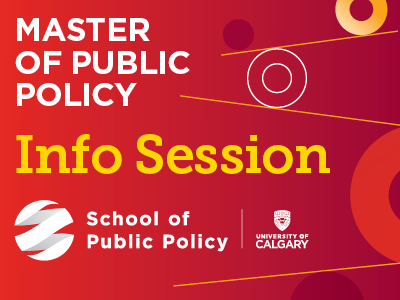Our People Feature: Zak Biggs, Research Coordinator, International Policy and Trade

No one needs to tell Zak Biggs to think globally. He long ago took it way beyond that – he acts globally.
Biggs is a Research Coordinator specializing in international policy and trade at the University of Calgary’s School of Public Policy, and the initiatives he has helped create have sent ripples of change across the globe.
One of the projects closest to his heart is the New Bridges program, which is a young leaders’ initiative that brings together German and Canadian young professionals. “I led the creation of that new program. It was a fantastic opportunity; I enjoyed creating this new program from scratch,” Biggs says.
Part of the German-Canadian conference series co-organized by Berlin-based Atlantik-Brücke and the School of Public Policy, New Bridges just got off the ground at the spring conference this year. “Atlantik-Brücke already had a young leaders program with their American partners, so we modelled New Bridges on that. We thought, wouldn’t it be great for Germans and Canadians?” Biggs says. The result is a program for 10 chosen young professionals – five German, five Canadian – aged 26 to 32, who demonstrate leadership capacity. It was a multidisciplinary group, with those who attended the conference at the end of April, “working in financial services, climate policy, academia, trade promotion and even the German Air Force,” Biggs says.
The 10 future leaders met first in Toronto and then went to Niagara-on-the-Lake to observe the 34th annual German-Canadian Atlantik-Brücke conference, an invite-only gathering of decision makers. Atlantik-Brücke is a non-profit association whose goal is to deepen Germany’s transatlantic connections. Meeting with the inaugural New Bridges delegates were such luminaries as international affairs writer Doug Saunders of the Globe and Mail, the School of Public Policy’s Jack Mintz and individuals working on climate research and technological disruption. Immigration and integration were also on the table for discussion, a nod to the reality that this is “a huge topic in Germany over the last few years,” Biggs says. “This program has strengthened relationships between future leaders of our countries, laid the foundations for future collaborations and will bring benefits to citizens.”
A Calgarian who has lived abroad, including in London and Munich for extended periods, Biggs has a master’s degree in public policy from the University of Calgary. He is also a member of Global Shapers, a group composed of nearly 400 hubs of young leaders around the world who see their work as shaping the future of their municipalities, regions and the world, based on the ideals of the World Economic Forum. Small-l liberalism, reducing barriers to trade, protecting human rights and belief in the free market’s ability to drive prosperity are among those ideals, according to Biggs. One of the Calgary hub’s current efforts is advocating for the return of fluoride to Calgary’s drinking water.
Biggs’ work has fostered his belief that the economy and trade “are the most central, pressing issues for Canada. We’re a trading nation; our domestic market is not large enough to support ourselves. We are reliant on imports and exports,” he says. “A strong relationship with the U.S. is most important for Canada.” The rise of China, which Biggs calls “the biggest geopolitical story of the 21st century,” means it’s imperative for Canada and China to find more common ground and mutual benefits.
Next up on Biggs’ busy schedule is the second annual Shoulder to Shoulder conference in London, U.K., scheduled for November of this year, in which the School of Public Policy has the leading role. The conference focuses on the issues of the day pertaining to Canada-U.K. relations including energy, financial markets, trade, and other hot-button topics. After that, back in Calgary, Biggs will return to his research on labour markets disruption and the best policy mechanisms for benefitting the working poor. He will also begin organizing a workshop on civilian-military relations. Stakeholders from academia, government and the private sector will gather to discuss “the public’s perception of the military,” Biggs says. The workshop will likely be scheduled for February or March 2020. Never a dull moment for Biggs – after the workshop, it will almost be time to head to Germany for the next New Bridges delegation.


